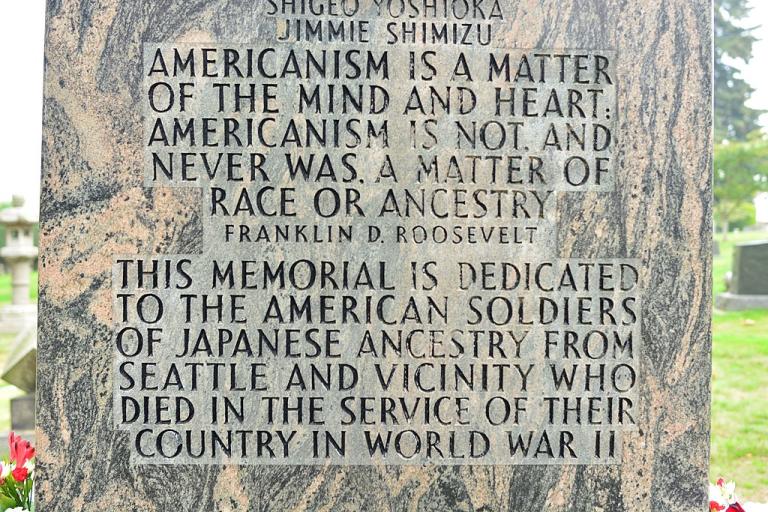
After World War II and during the Cold War, it was commonly said that America is not a nation based on ethnicity, as in the European nations, nor on race, as in the recently defeated Fascist nations. Rather, America is based on ideas as articulated in the Declaration of Independence and embodied in the Constitution with its Bill of Rights. America is defined by its principles of freedom, equality, individualism, and democracy. America consists of people from all ethnicities, races, and national backgrounds who have come to these shores seeking these principles and the opportunities they make possible,
When I was in school in the olden days, we actually had classes in “Americanism,” studying those principles as opposed to the collectivism, tyranny, and state control of Communism. Yes, these Cold War lessons were in the context of America’s mortal struggle with the Soviet Union, but they were not just propaganda. Nor were they the property of just conservatives. These convictions were foundational to the Civil Rights movement and insured its success among the general public. Even today, legal immigrants must pass a test to demonstrate their knowledge of America and its principles as a pre-requisite of citizenship.
Now, though, there is a counter-movement that maintains that America should be thought of as a culture, an ethnicity, a distinct people with a common history. The National Conservatives, Christian or otherwise, tend to think in these terms, as do the conservative intellectuals of the “post-liberal” or “illiberal” school of thought. J. D. Vance alluded to this in his acceptance speech as Republican candidate for the vice-president when he said, “America is not just an idea. It is a group of people with a shared history and a common future. It is, in short, a nation.”
Fred Bauer discusses this controversy in his post for National Review entitled America beyond Ideas. And he shows that it’s not as simple as it might appear. If being an American involves believing in the principles stated in the Declaration of Independence, can’t atheists–who do not believe there is a Creator to endow inalienable rights– be Americans? I would counter Bauer’s point by saying that, yes, they can be, because the Constitution guarantees them freedom of religion. They would presumably not be Americans in the Integralists’ dream of America as a Catholic principality. Nor would they likely fit in with the communitarians’ organic societies, though Americanism would protect their individualism.
America as an idea allows and protects differences. America as a “people” values unity, and in so doing favors conformity and is oriented to tribalism. Perhaps that’s part of our problem. America is not a unified culture and is not a tribe, so its various factions consider themselves to be the true tribe and must be in conflict with the others. Our motto is e pluribus unum, “out of many, one,”–a unity of diverse individuals made possible by our common commitment to our Constitutional order.
Bauer is worried that thinking of America in terms of a set of ideas is too rigid and exclusionary. People disagree on what constitutes an “inalienable right,” for example, and Bauer laments the “volleys of excommunication” that constitutes so much of our political discourse. (Bauer cites President Biden’s dismissal of “MAGA Republicans” for allegedly not believing in the Constitution and being “a threat to this country.”)
But thinking of America as the land of liberty and individual rights allows for such discussions and prevents people from being excommunicated for their opinions. A nation consisting of a single community, though, is rigid and exclusionary. You are either in or out. You belong or you do not. Biden thinks MAGA Republicans are “a threat,” so he does not respect them and he considers them to be “other” than himself and his group. That’s communitarian talk. That’s not Americanism, though Americanism would allow Biden, like MAGA Republicans, to have their say.
Photo: Nisei War Memorial, Seattle, by Joe Mabel, CC BY-SA 4.0 <https://creativecommons.org/licenses/by-sa/4.0>, via Wikimedia Commons












